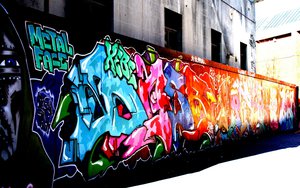TEASIG Webinar "A CEFR Special – The new Companion Volume highlighted"
Feb. 18, 2019
TEASIG Webinar "A CEFR Special – The new Companion Volume highlighted"
Date: 19th Feb 2019 Time: 1700-1830 UK Local time (1800-1930 CET)
TEASIG's first webinar of 2019 offers two presentations aimed at teachers and testers with the chance to learn a little bit more from two speakers actively involved with the new CEFR Companion Volume.
The CEFR is part of our everyday language and has been since 2001 and is available in 40 languages. Recent evolutions and development of assessing languages within socio-cultural contexts has necessitated a fresh look at the original illustrative scales with descriptors for mediation, reactions to literature and online interaction, to produce versions for young learners and for sign languages, as well as to develop more detailed coverage in the descriptors for A1 and the C levels. The net result of this evolution is the CEFR Companion Volume. It has been particularly welcomed by those concerned with online interaction, collaborative learning and mediating text, as well as the importance that policy makers attach to the provision of descriptors for plurilingualism/<wbr/>pluriculturalism.
Rudi Camerer, who specializes in intercultural competence will look at some of the innovations that set apart the CV from the older scale: Firstly, no ‘NATIVE SPEAKER’ appears anywhere in the document. So the question of standards needs to be discussed. Secondly, the new approach connects with social-constructionist approaches and treats processes of meaning-making as MEDIATION. Rudi will examine the descriptor scales and assess the challenges test developers may have in defining valid test constructs and test procedures.
Secondly Glyn Jones will report on research currently being undertaken that aims to replicate an important aspect of the research project (North, 2000) which led to the calibration of the CEFR descriptors. Glyn intends to revisit some of the original calibration estimates in his work, as well as to extend the procedure to descriptors that were not calibrated in the original study, including some of those in the new CEFR Companion Volume.
The two presentations will be followed by a 30-minute Q&A session moderated by TEASIG's Neil Bullock which will give attendees the chance to question Rudi and Glyn on any emerging comments and thoughts.
Rudi Camerer directs elc-European Language Competence, a consultancy based in Frankfurt/Main and Saarbrücken. His professional background is in adult education and language testing. He is one of the two official translators of the German version of the CEFR-CV.
Glyn Jones is a freelance consultant in language learning and assessment. An EFL teacher by background, he worked extensively in the fields of Self Access Learning and Computer Assisted Language Learning before specialising in assessment. He has worked as a test development manager for two major awarding bodies. He is currently studying for a PhD in Linguistics at Lancaster University.
The webinar is free, does not need advance registration and can be accessed at: https://iatefl.<wbr/>adobeconnect.com/_a875541554/<wbr/>teasigwebinars/


















































































